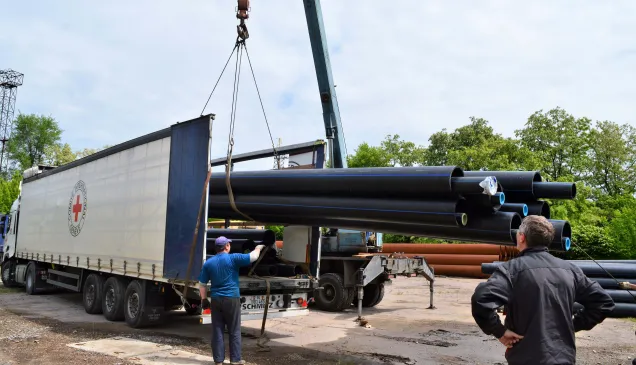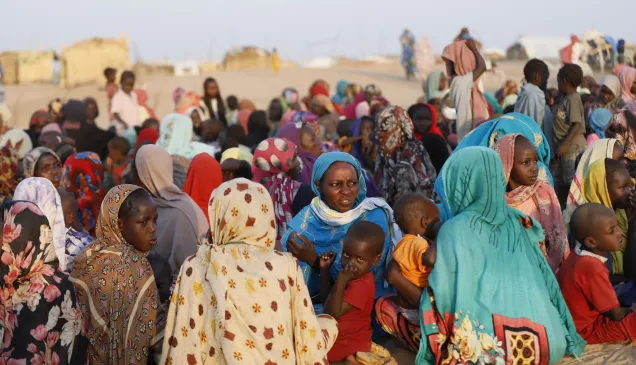Meeting of the States Parties to the Convention on the prohibition of the Development, Production and Stockpiling of Bacteriological (Biological) and Toxin Weapons and on Their Destruction, 14-18 December 2015, Geneva. Statement by the ICRC.
The International Committee of the Red Cross (ICRC) remains concerned about the risks posed by biological weapons to human and animal health, and the environment. It therefore supports efforts to strengthen the web of measures to uphold the prohibition of these weapons and prevent their use.
In light of its assessment that there is a lack of international capacity specifically to assist the victims of any use of biological weapons, the ICRC welcomes the recent attention given by States Parties to strengthening the implementation of Article VII on measures for the provision of assistance. From the ICRC's perspective, the focus of such efforts must be on enhancing the capability to assist any victims, with improved mechanisms to help States achieve this goal.
The response to any suspected or confirmed use of biological weapons must place humanitarian needs first, including by ensuring rapid and unimpeded access for humanitarian workers to affected regions and populations. Addressing these needs must take priority over investigating alleged weapon use, and any parallel investigations should be kept separate so as not to hamper the humanitarian response.
Many States Parties have recognized that response efforts may involve not only the government of the State(s) concerned, but also various international and non-governmental organizations, including humanitarian organizations. The ICRC believes that better mapping the current capacity, limits, roles, mandates and working methods of relevant organizations would provide vital information for the process of improving international response capacity. It could help avoid unnecessary duplication or complication of existing humanitarian response mechanisms and ensure better coordination during an emergency.
The challenges encountered by the international response to the naturally occurring Ebola outbreak in Guinea, Liberia and Sierra Leone show that much work remains to be done in preparing for any deliberate spread of disease. Efforts to strengthen the implementation of Article VII of the Biological Weapons Convention should therefore remain a top priority for the programme of work to be agreed on at next year's Review Conference.
Looking ahead to 2016, there are two other issues that the ICRC would like to bring to the attention of States Parties.
First, the question of how to effectively monitor and assess compliance with the Convention remains central to strengthening the prohibition. In the view of the ICRC, the longstanding divergence of views on the merits of a legally binding verification mechanism should not prevent States Parties from considering proposals of other ways to improve confidence in compliance. As a first step, the Review Conference next year should initiate a process or working group to consider ways to improve monitoring and assessment of compliance, and thereby strengthen the Convention.
Second, as many States have emphasized during recent inter-sessional meetings, there is a need for more systematic assessment of the implications of developments in science and technology for the Convention. An opportunity to set up a specific body for this purpose was missed in 2011, and meanwhile developments in the life sciences and related enabling technologies have continued apace. The ICRC urges States Parties to come to next year's Review Conference with the intention of establishing an effective mechanism to prioritize topics of interest and carry out the required scientific assessments.
In closing, the ICRC welcomes the accession to the Convention by Mauritania and Andorra in 2015 and commends States Parties and the Implementation Support Unit for their continued efforts at universalization. There can be no justification for any State to remain outside this Convention, and the ICRC urges all 24 States not yet party to ratify or accede without delay.



